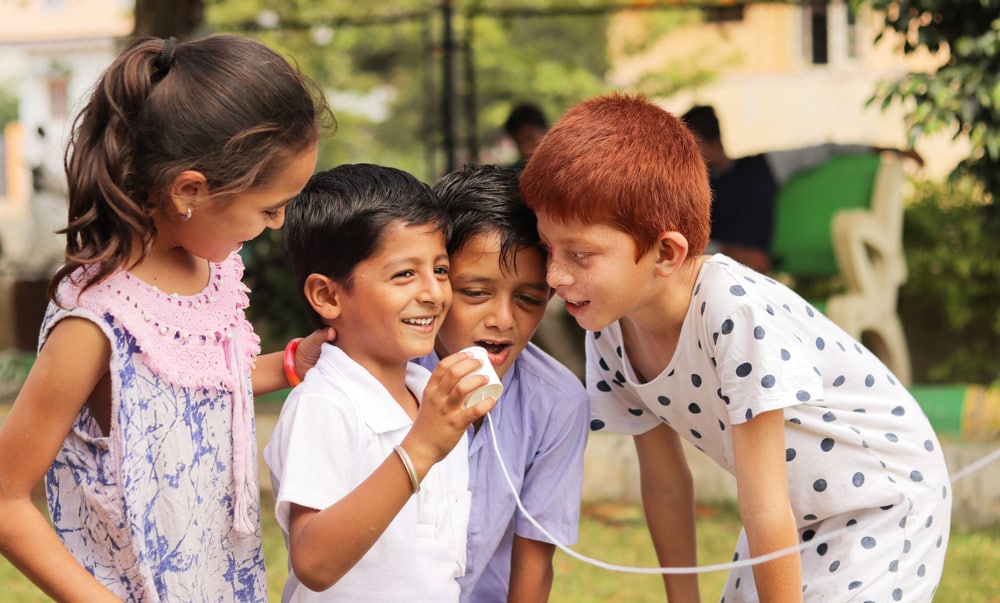
August is a time of mixed emotions for parents and their children. While some children are eagerly counting down the days until they can go back to school, others struggle with feelings of anxiety and sadness. For many parents, it can be challenging to know how to help their children prepare for the transition from summer break to the school year. This blog post will provide eight helpful tips on preparing your child mentally and physically for the upcoming school year!
Talk to your child about their feelings:
Having an open and honest conversation with your child about their feelings surrounding the upcoming school year is essential. If they are feeling anxious or sad, try to validate their emotions and offer reassurance that it is normal to feel this way. It can also be helpful to talk about any positive aspects of the upcoming school year that they may be looking forward to, such as seeing friends or participating in extracurricular activities.
If your child is having difficulty expressing their emotions, you could try using art or play as a way for them to express themselves. This can be a fun and creative way for them to process their feelings and work through any anxieties they may be experiencing. Finally, listening to your child and respecting their feelings is crucial. Avoid dismissing their emotions or telling them they “shouldn’t” feel a certain way. This will only make them feel more unsupported and could further increase their anxiety.
Help them to establish a routine:
The start of the school year can be hectic, so it is vital to help your child establish a routine that will help them feel more prepared and organized. This could involve setting out their clothes for the next day the night before, packing their backpack with everything they need, and having a set time for doing homework each day. It may also be helpful to create a visual schedule they can refer to daily. This can be as simple as drawing pictures or using words to represent different activities that need to be completed. For example, you could include “wake up,” “eat breakfast,” “brush teeth,” “get dressed,” “go to school,” and “come home.”
Help them get enough sleep:
It is crucial for children to get enough sleep to help them feel more rested and focused during the day. Establish a bedtime routine that will allow your child to wind down before going to sleep. This could involve reading a book together, taking a warm bath, or listening to calm music. You should also avoid letting your child use screens (such as phones, tablets, or TVs) in the hour leading up to bedtime, as the blue light from these devices can make it more difficult to fall asleep.
If your child has difficulty sleeping through the night, you could try setting some limits on naps during the day. Naps can be helpful for some children, but others may find that they have a more challenging time falling asleep at night if they take one. It is also essential to avoid giving your child caffeine, as this can make it even more difficult for them to sleep.
Encourage them learn new skills:
One way to help your child prepare for school is to encourage them to learn new skills. This could mean teaching them how to tie their shoes or helping them practice writing their name. Learning new skills will help your child feel more confident and prepared for school.
Another way to encourage your child to learn new skills is to sign them up for extracurricular activities with study guides. These activities can help your child develop new interests and talents. They can also make new friends and build confidence.
There are many different extracurricular activities available, so it’s important to find one that is right for your child. Some popular options include sports, dance, music, and art classes. You can also look into programs offered by your local community center or library.
You can do many things to help your child prepare for school mentally and physically. Just remember to be patient, supportive, and encouraging. With a bit of time and effort, your child will be ready to take on any school challenges.

Help them to socialize:
Starting school can be a big adjustment for some children, especially if they are shy or introverted. One way to help your child socialize is to encourage them to play with other kids in the neighborhood. This will allow them to practice interacting with other children and make friends before starting school.
If your child is having difficulty making friends, you could also try signing them up for a class or activity that interests them. This will help them meet other kids who share their interests. Additionally, you can talk to the parents of your child’s classmates and arrange playdates or carpools. This will help your child feel more comfortable around their classmates and make it easier for them to socialize.
You could also try attending a parent-teacher meeting or open house at your child’s school. This will allow you to meet the teachers and learn more about the curriculum. It will also help your child feel more comfortable in their new environment.
Help them create an active lifestyle:
Encouraging your child to lead an active lifestyle is a great way to help them prepare for school. Physical activity can help improve focus, concentration, and energy levels. It can also reduce stress and anxiety.
There are many different ways to encourage your child to be active. For example, you could try signing them up for a sport or taking them for walks or bike rides together. You can also turn off the TV and encourage your child to play outside. You could also try teaching them some simple exercises they can do at home, such as jumping jacks or sit-ups.
A healthy diet is also important for children’s physical and mental development. Try to include plenty of fruits, vegetables, whole grains, and protein in your child’s diet. You should also limit sugary snacks and drinks.
Help them to relax:
Starting school can be a stressful time for children. One way to help your child relax is to encourage them to take time for themselves daily. This could mean reading, listening to music, or taking a bath. In addition, your child must have some time to unwind and relax before bedtime.
You could also try teaching your child relaxation techniques, such as deep breathing or visualization. These techniques can help reduce stress and anxiety. Additionally, you can try using essential oils for diffusers in your home to create a calm environment. It’s also important to have realistic expectations for your child. They may not be able to do everything perfectly at first, and that’s okay. Just encourage them to do their best and be supportive of their efforts.
Be supportive:
One of the most important things you can do to help your child prepare for school is to be supportive. This means being there for them when they need you and encouraging them when they feel discouraged. It’s also important to praise their efforts and successes.
Starting school can be a big adjustment for both children and parents. Just remember to take things one day at a time and be patient. With a bit of time and effort, your child will adjust to their new routine and be ready to take on school challenges.
Another way you can support your child as they transition into school is by helping them stay organized. This could mean creating a daily or weekly schedule for them to follow. You could also help them pack their backpack the night before school and lay out their clothes. Additionally, you can talk to their teacher about any concerns you have and ask for advice on how to best support your child.

Leave a Reply